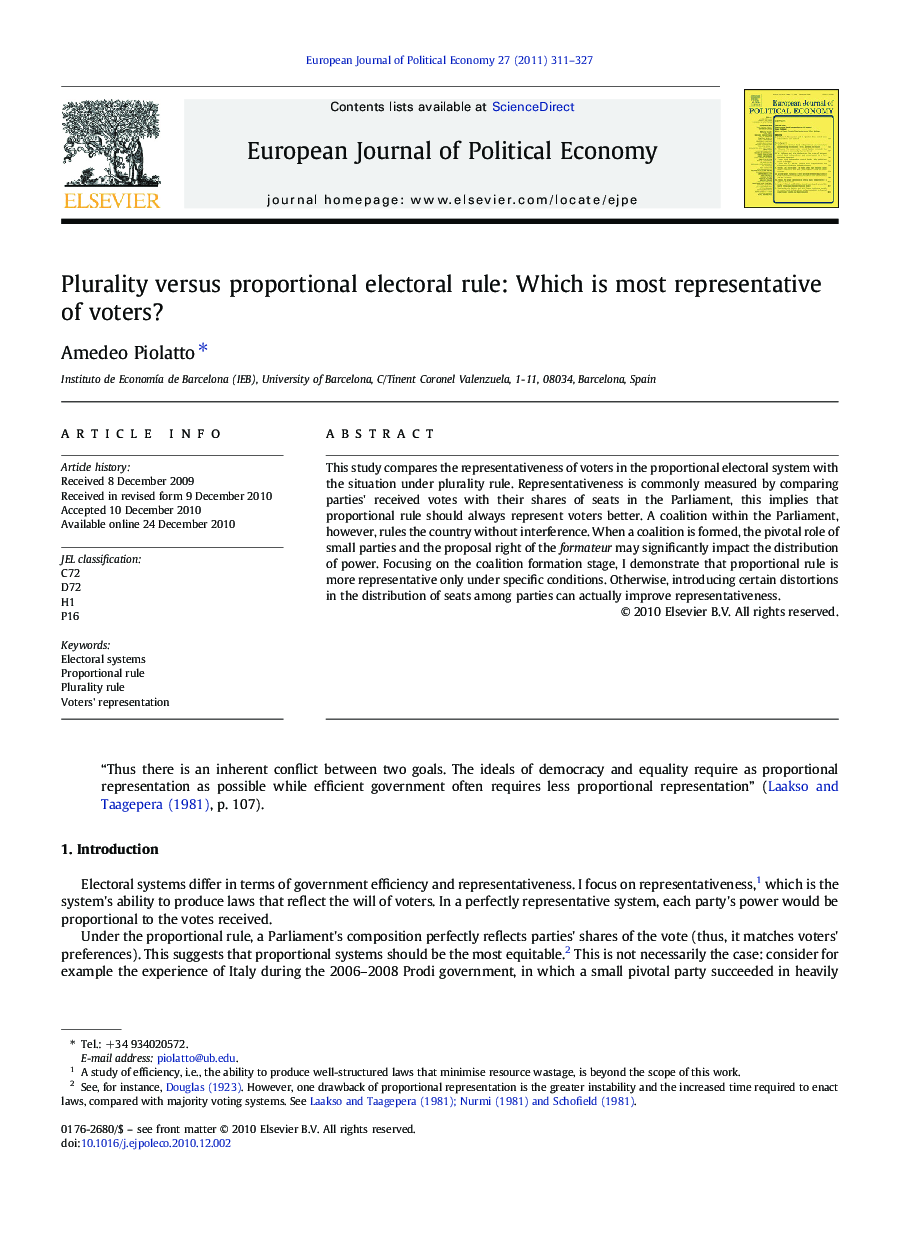| Article ID | Journal | Published Year | Pages | File Type |
|---|---|---|---|---|
| 5068165 | European Journal of Political Economy | 2011 | 17 Pages |
This study compares the representativeness of voters in the proportional electoral system with the situation under plurality rule. Representativeness is commonly measured by comparing parties' received votes with their shares of seats in the Parliament, this implies that proportional rule should always represent voters better. A coalition within the Parliament, however, rules the country without interference. When a coalition is formed, the pivotal role of small parties and the proposal right of the formateur may significantly impact the distribution of power. Focusing on the coalition formation stage, I demonstrate that proportional rule is more representative only under specific conditions. Otherwise, introducing certain distortions in the distribution of seats among parties can actually improve representativeness.
Research Highlights⺠In coalition governments, small parties enjoy too much power compared to their votes. ⺠Distorting the electoral system to favour large parties is usually beneficial. ⺠Under non restrictive conditions, the plurality rule dominates the proportional one.
